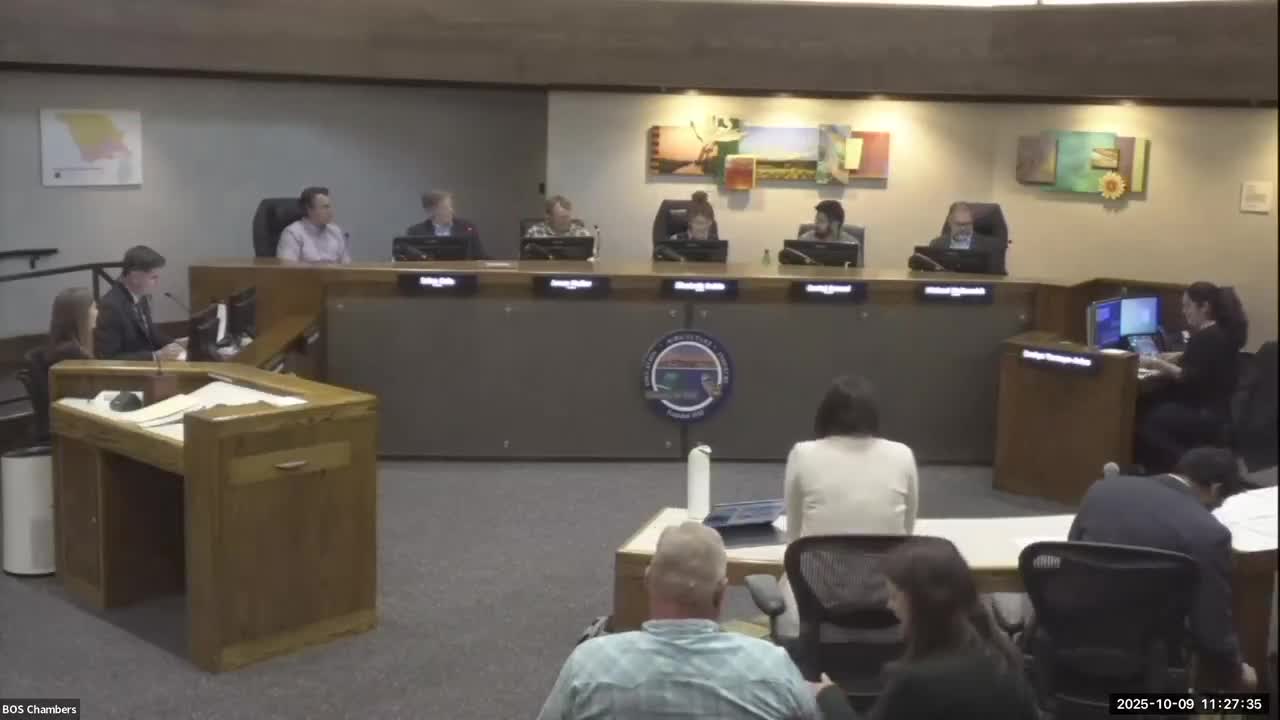Planning commission finds Zipline’s Nest Z qualifies as a small experimental agricultural research facility
Get AI-powered insights, summaries, and transcripts
Subscribe
Summary
After hearing staff, the applicant and public comment, the Planning Commission agreed the Zipline Nest Z test site fits the county’s small experimental agricultural and seed research category and instructed staff to process a site-plan review; commissioners asked staff to consider broader zoning updates for drone uses.
The Yolo County Planning Commission on Tuesday determined that Zipline’s Nest Z drone test site on the Yolo Land & Cattle Ranch qualifies under county code as a “small experimental agricultural and seed research” facility and directed staff to process the company’s site-plan review application.
Why it matters: The commission’s interpretive finding allows Zipline to pursue a ministerial site-plan review rather than a discretionary zoning amendment or use-permit process that would require a broader code change and potentially a CEQA document. Commissioners also called for the county to evaluate whether the zoning code needs an explicit category for drone test and delivery facilities as the technology proliferates.
What the commission decided: Commissioners voted 7–0 that the project qualifies under the county’s small experimental agricultural and seed research classification (a by‑right, site-plan review pathway that applies to facilities of five acres or less). Staff will process the site-plan review to verify objective code standards and permit conditions. Because site-plan review is ministerial, staff said a full discretionary approval with broad new conditions would not apply at this stage; any additional mitigation or policy-level changes would require a different process such as a minor‑use permit or a zoning code amendment.
Project description and county review questions: Zipline’s Nest Z occupies a 4.9‑acre footprint within a roughly 7,400‑acre ranch and has operated on the Stones property since 2017. The facility includes modular office units, tents, shipping‑container storage, drone-docking towers and mock “backyard” delivery sites; a staffed 12‑foot observation tower is used while drones are aloft. Staff said Nest Z currently operates roughly 500–600 test flights per day (7–8 drones aloft typical, up to 20), mostly at 300–400 feet above ground, and the applicant plans to scale toward up to about 2,500 daily test flights at full buildout. Zipline said the operations are limited to the ranch property’s flight area and that the firm will not expand the on‑ground footprint.
Support and concerns: Zipline emphasized agricultural and rural uses of its technology, noting the company’s global history delivering vaccines and animal‑health products to remote areas and newer U.S. pilots delivering retail, automotive parts and food in Dallas‑Fort Worth. The county received letters backing Zipline from the Yolo County Farm Bureau, Madison Fire Chief Paul Green and the Center for Land Based Learning; the property owners (Stones) described local economic benefits and urged a path that avoids a lengthy CEQA process.
Some commissioners and staff raised questions about how aerial operations best fit the county’s use tables and whether the site‑plan review path should prompt a broader zoning‑code update that explicitly covers drone testing and commercial drone deliveries. Staff and Zipline cited a Madrone Ecological Consulting report that found a low potential for nest abandonment or bat impacts at the existing site and recommended practical avoidance measures (buffers, worker training) that Zipline said it will implement.
Next steps: Staff will process the site‑plan review and apply objective development standards; if the project later seeks changes not allowed by that ministerial path (for example, a larger footprint or a different use), the applicant would need to pursue a discretionary permit or zoning amendment. Several commissioners asked staff to consider a future, programmatic conversation on how drone testing and delivery uses should be defined and regulated in Yolo County’s zoning code.
